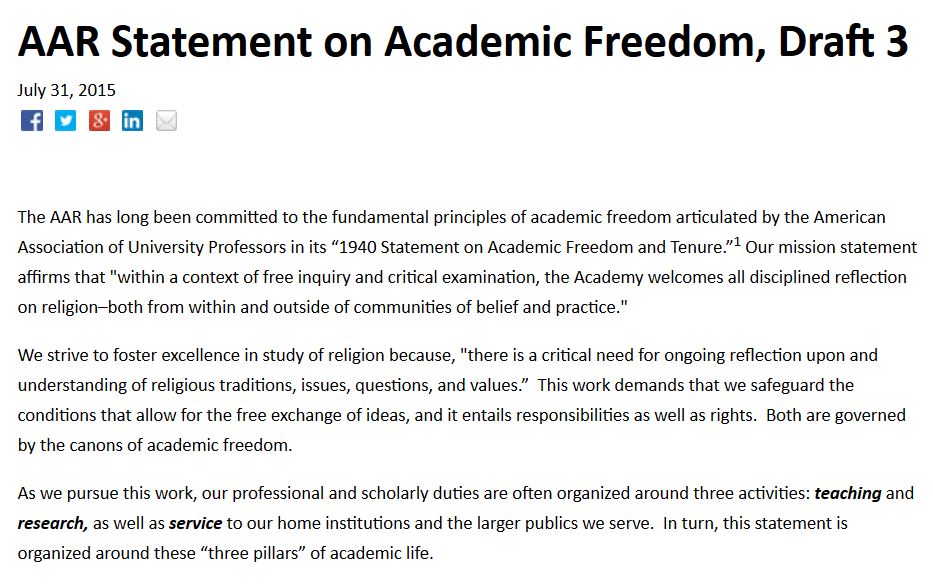
Recently, the Board of Directors of the American Academy of Religion released a draft update to its 2006 statement on Academic Freedom and the Teaching of Religion and solicited feedback from members. Given that the members of Culture on the Edge are all scholars of religion, some have opted to offer their feedback to the AAR via this short series of posts on our site. (An index to all the posts in this series can be found here)
Monica Miller
As a scholar on the “critical” side of many debates in the study of religion, I have a general frustration with the impact of religious institutional footprints, affiliations and ethical assumptions on the American Academy of Religion. The language of “…within and outside of communities of belief and practice” and talk of “…religious traditions, issues, questions, and values” in the recent proposed revisions on the AAR Statement on Academic Freedom comes as no surprise. Continue reading “Response to the American Academy of Religion’s Statement on Academic Freedom, Part 5”

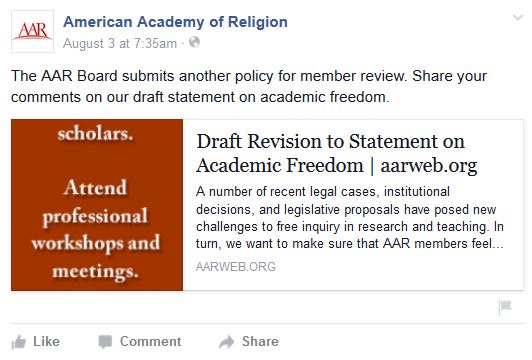 In response to the AAR’s invitation for comments on its recently
In response to the AAR’s invitation for comments on its recently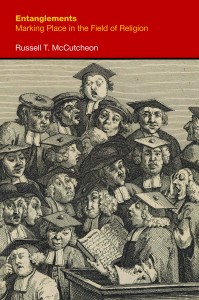
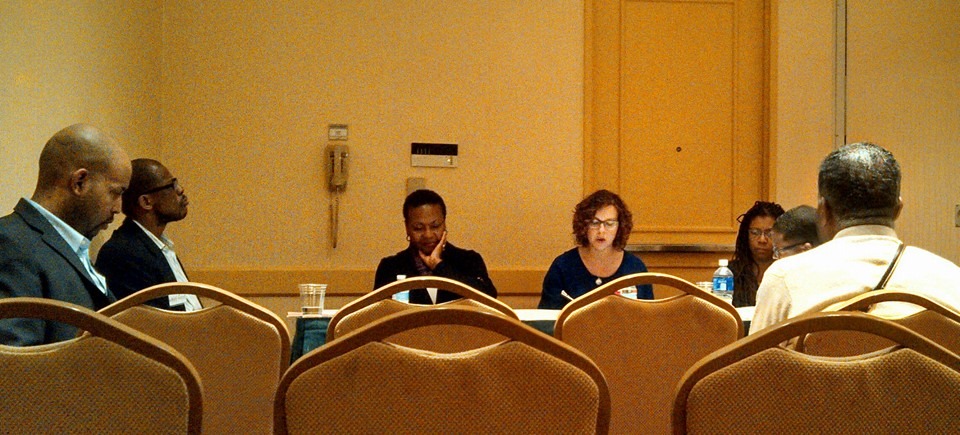 The Edge’s Merinda Simmons, pictured above (center, middle right), presents her book response at the
The Edge’s Merinda Simmons, pictured above (center, middle right), presents her book response at the  The
The 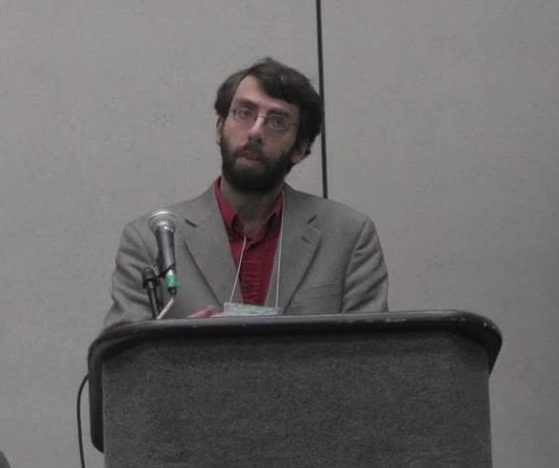
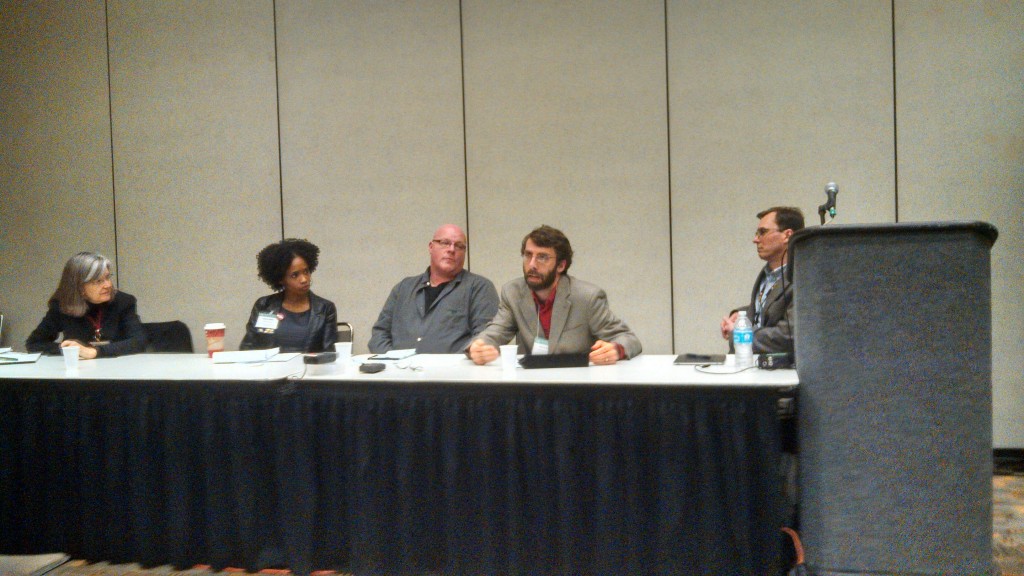 Our Curator,
Our Curator,